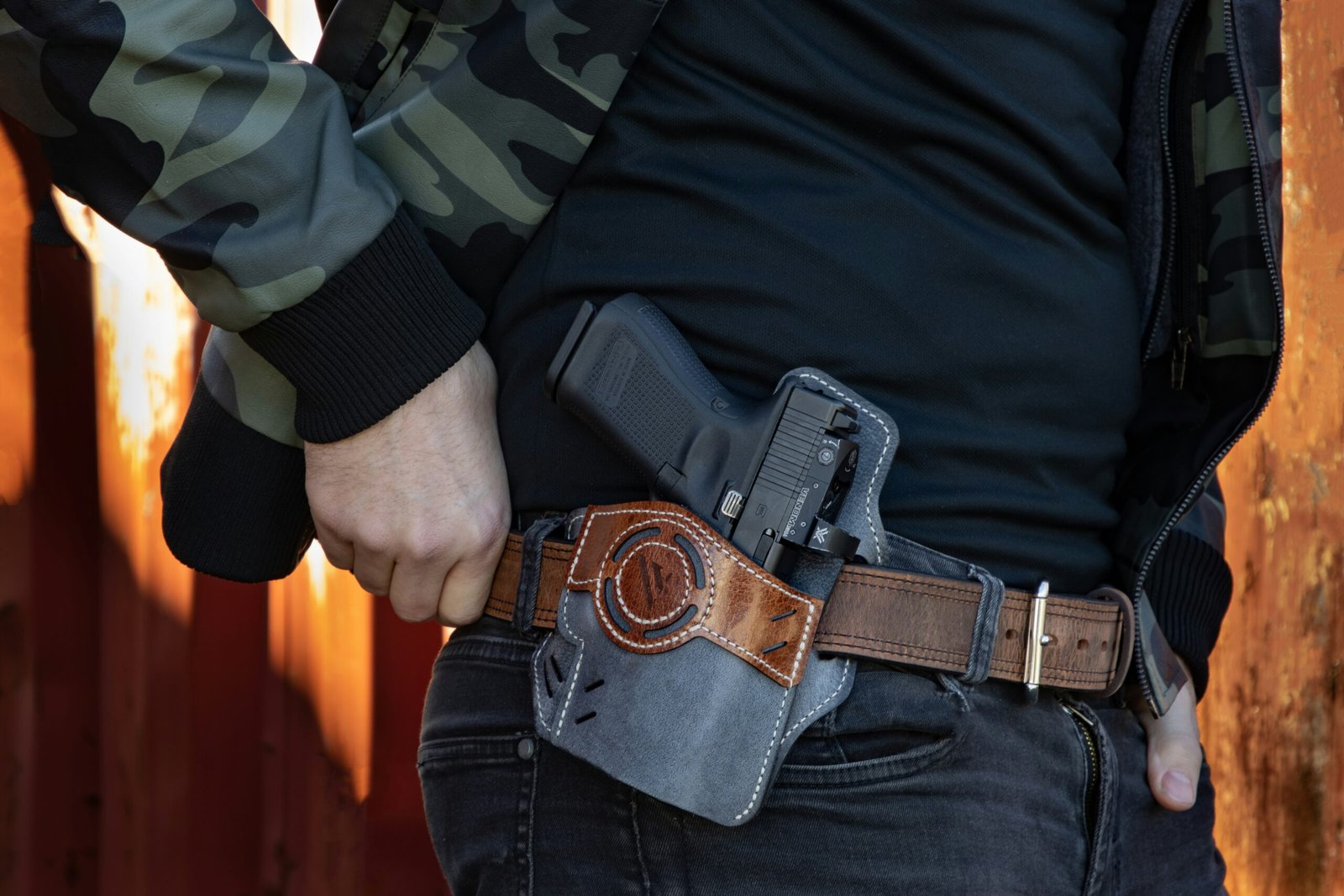In the “Know Your Rights: A State-by-State Breakdown of Car Gun Safe Laws,” this informative article provides you with a comprehensive guide to help you navigate the complex landscape of car gun safe laws across different states. Get ready to explore the varying regulations and requirements in each region, as we shed light on the specific legislation and provide you with a clear understanding of your rights and responsibilities. Whether you’re a firearm enthusiast or simply concerned about securing your weapons properly while on the road, this article is your go-to resource for staying informed and ensuring compliance with state laws.

This image is property of images.pexels.com.
Alabama
Concealed Carry Laws
In Alabama, concealed carry laws are relatively permissive compared to some other states. Individuals who are at least 18 years old can obtain a concealed carry permit. However, it is important to note that Alabama law recognizes the concept of “open carry,” meaning that you can carry a firearm openly without a permit. If you choose to carry concealed, though, it is advisable to have the appropriate permit to avoid any potential legal issues.
Storage and Transportation Laws
When it comes to storage and transportation of firearms in Alabama, there are certain guidelines that should be followed to ensure both safety and compliance with the law. While Alabama does not have specific laws governing the storage of firearms in vehicles, it is generally recommended to keep firearms securely stored in a locked container or gun safe, preferably out of plain sight. This helps prevent unauthorized access to the firearm and reduces the risk of theft. When transporting a firearm in a vehicle, it is important to ensure that it is unloaded and stored in a closed container or securely fastened in a gun rack.
Alaska
Concealed Carry Laws
Alaska is known for having some of the most relaxed concealed carry laws in the United States. In fact, Alaska is a “constitutional carry” state, meaning that individuals who are at least 21 years old and not prohibited by law from possessing a firearm can carry a concealed weapon without a permit. However, if you plan to travel outside of Alaska, you may want to consider obtaining a concealed carry permit, as it may be required in other states.
Storage and Transportation Laws
When it comes to storing and transporting firearms in Alaska, there are no specific laws that dictate how firearms should be kept within a vehicle. However, it is generally recommended to store firearms in a locked container or gun safe to prevent unauthorized access and reduce the risk of theft. When transporting firearms, it is important to ensure they are unloaded and, if possible, stored in a closed container or securely fastened in a gun rack.
Arizona
Concealed Carry Laws
Arizona has relatively permissive concealed carry laws. Individuals who are at least 21 years old and legally allowed to possess a firearm can carry a concealed weapon without a permit. This is commonly referred to as “constitutional carry.” However, Arizona also offers a concealed carry permit for those who may want to take advantage of reciprocity agreements with other states or for other personal reasons.
Storage and Transportation Laws
In Arizona, there are currently no laws that specifically address the storage of firearms in vehicles. However, it is generally recommended to keep firearms securely stored in a locked container or gun safe to prevent unauthorized access and reduce the risk of theft. When transporting firearms, ensure they are unloaded and, if possible, stored in a closed container or securely fastened in a gun rack.
Arkansas
Concealed Carry Laws
In Arkansas, concealed carry laws require individuals to obtain a concealed carry permit. The minimum age requirement for obtaining a permit is 21, or 18 if you are an active duty or reserve member of the armed forces. Arkansas also offers the option of open carry without a permit if you choose not to conceal your firearm.
Storage and Transportation Laws
Arkansas does not have any specific laws pertaining to the storage of firearms in vehicles. However, it is generally recommended to keep firearms securely stored in a locked container or gun safe to prevent unauthorized access and reduce the risk of theft. When transporting firearms, it is important to ensure they are unloaded and, if possible, stored in a closed container or securely fastened in a gun rack.

This image is property of images.pexels.com.
California
Concealed Carry Laws
California has more restrictive concealed carry laws compared to many other states. To carry a concealed weapon, individuals must obtain a concealed carry permit, also known as a CCW (Carry a Concealed Weapon) permit. California has a “may-issue” policy, meaning that the issuing authority has discretion over whether to grant a permit. It is important to be aware that California’s laws regarding concealed carry are subject to change and can vary between counties.
Storage and Transportation Laws
California has specific laws regarding the storage and transportation of firearms in vehicles. When leaving a firearm in an unattended vehicle, it must be stored in a locked container that is not visible from outside the vehicle. Additionally, when transporting a firearm, it must be unloaded and stored in a locked container or locked trunk. These regulations are in place to help prevent unauthorized access to the firearm and ensure safe transportation.
Colorado
Concealed Carry Laws
In Colorado, individuals aged 21 or older can obtain a concealed carry permit by meeting certain requirements, such as completing a background check and completing a firearm safety course. Colorado is a “shall-issue” state, meaning that once you meet the requirements and pass the background check, the state must issue you a permit.
Storage and Transportation Laws
Colorado does not have specific laws that govern the storage of firearms in vehicles. However, individuals are encouraged to keep firearms securely stored in a locked container or gun safe to prevent unauthorized access and reduce the risk of theft. When transporting firearms, it is important to ensure they are unloaded and, if possible, stored in a closed container or securely fastened in a gun rack.

This image is property of images.pexels.com.
Connecticut
Concealed Carry Laws
Connecticut requires individuals who wish to carry a concealed weapon to obtain a permit. The process includes completing a firearms training course and passing a background check. The minimum age to obtain a permit is 21, although individuals aged 18 to 21 may apply for a permit if they are a member of the armed forces or a law enforcement officer.
Storage and Transportation Laws
Connecticut has specific laws regarding the storage of firearms in vehicles. When leaving a firearm in an unattended vehicle, it must be stored in a locked trunk, glove box, or other securely locked container. When transporting a firearm, it must be unloaded and stored in a locked trunk or, if the vehicle does not have a trunk, in a locked container that is not easily accessible from the interior of the vehicle.
Delaware
Concealed Carry Laws
In Delaware, individuals who wish to carry a concealed weapon must obtain a concealed carry permit. The minimum age requirement is 21, and applicants must meet certain eligibility criteria such as completing a firearms training course and passing a background check.
Storage and Transportation Laws
Delaware does not have specific laws regarding the storage of firearms in vehicles. However, it is generally recommended to keep firearms securely stored in a locked container or gun safe to prevent unauthorized access and reduce the risk of theft. When transporting firearms, it is important to ensure they are unloaded and, if possible, stored in a closed container or securely fastened in a gun rack.
Florida
Concealed Carry Laws
Florida has relatively permissive concealed carry laws. Individuals who are at least 21 years old and meet certain eligibility criteria can obtain a concealed carry permit. Additionally, Florida has reciprocal agreements with many other states, allowing individuals with a valid out-of-state concealed carry permit to carry concealed in Florida.
Storage and Transportation Laws
Florida does not have specific laws regarding the storage of firearms in vehicles. However, it is generally recommended to keep firearms securely stored in a locked container or gun safe to prevent unauthorized access and reduce the risk of theft. When transporting firearms, it is important to ensure they are unloaded and, if possible, stored in a closed container or securely fastened in a gun rack.
Georgia
Concealed Carry Laws
In Georgia, individuals who are at least 21 years old and meet certain eligibility criteria can obtain a concealed carry permit. Georgia also offers a non-resident permit for individuals who live in a state that does not have reciprocity with Georgia. However, it is important to note that Georgia recognizes the concept of “open carry,” meaning that you can carry a firearm openly without a permit.
Storage and Transportation Laws
Georgia does not have specific laws regarding the storage of firearms in vehicles. However, it is generally recommended to keep firearms securely stored in a locked container or gun safe to prevent unauthorized access and reduce the risk of theft. When transporting firearms, it is important to ensure they are unloaded and, if possible, stored in a closed container or securely fastened in a gun rack.
As always, it is important to familiarize yourself with the specific laws and regulations of your state when it comes to concealed carry and the storage and transportation of firearms. It is also advisable to consider seeking legal counsel or consulting local law enforcement to ensure you are in compliance with all applicable laws. By knowing and understanding your rights and responsibilities, you can enjoy the benefits and peace of mind that come with responsibly exercising your Second Amendment rights. Stay safe out there!


